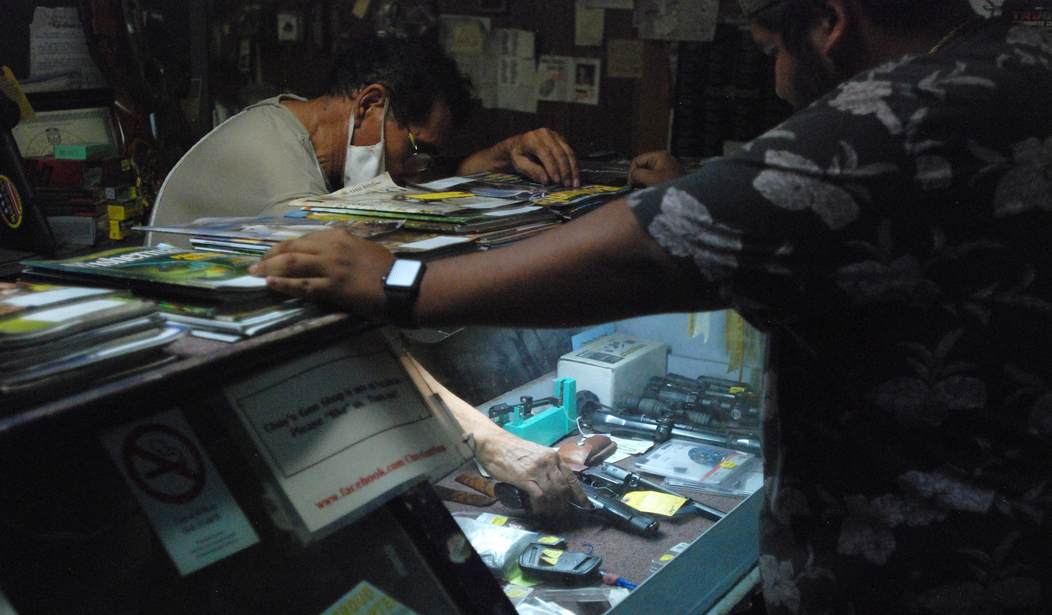The honest answer, of course, is that these laws don’t reduce crime at all, but I’m very curious to know what anti-gun activists would say given that requiring background checks on all firearm transfers is one of the gun control lobby’s top priorities around the country.
Second Amendment journalist Dave Workman has highlighted some comments from the Washington State-based gun control group Alliance for Gun Responsibility, which recently held its annual fundraising luncheon in Seattle and patted itself on the back for the “remarkable progress” its made since its founding in 2013. Workman astutely wonders what progress the group is talking about, since violent crime has been rising in Washington State for much of that time period.
Liberty Park has previously reported the demonstrable failure of the Evergreen State gun control crusade. Homicides are creeping upward in the years since passage first of anti-gun Initiative 594—the so-called “universal background check” mandate—in 2014 and Initiative 1639—which discriminates against young adults’ Second Amendment rights and invented a definition for a firearm that does not exist, the so-called “semiautomatic assault rifle.”
To refresh everyone’s memory, in 2015, the first full year following passage of the $10.4 million I-594 gun control measure, Washington reported 209 homicides including 141 committed with firearms, according to the FBI Uniform Crime Report for that year.
By 2020, the most recent year for which FBI data is available, Washington saw 298 slayings, including 177 involving firearms.
That doesn’t look like progress to me, and when you add in the fact that prosecutions for obtaining a gun without a background check have been few and far between in the state since the law took effect, the gun control group’s boasting is even more bizarre. Heck, even when individuals fail a background check, they are rarely prosecuted as a result, but the anti-gun nuts are convinced that they’re having an impact.
Seattle mayor Bruce Harrell, who served as the keynote speaker for the gun control group’s fundraiser, also took aim at the state’s firearm preemption law, which was unanimously upheld by the Washington Supreme Court last month. Harrell said he’s “trying to find some relief” from the law, which prohibits cities like Seattle from imposing their own local gun control ordinances. Harrell’s a big fan of local control, as long as it means controlling gun owners, though Workman reminds us that Seattle’s big idea to tax the Second Amendment rights of residents has also been a miserable failure.
Speaking of Seattle, in 2015, the city council—with Harrell serving on that panel at the time—adopted a “gun violence” tax, assessing a $25 special tax on the sale of each firearm, plus 5 cents for each centerfire cartridge and 2 cents for every rimfire cartridge. Revenue was projected to bring in between $300,000 and $500,000 annually, to finance “anti-violence” efforts.
In 2016, the first full year in which the tax was collected, Seattle Police data shows there were 19 homicides. In 2021, there were 40 murders. Not all of those killings involved firearms. As noted earlier, Seattle is headquarters to the Alliance.
Not only did shootings increase, but the amount of money that Seattle was hoping to extort from from gun owners has never come close to the predictions from pols like Harrell. As the National Shooting Sports Foundation reported in 2020:
Last year, the city collected $85,352, which is only $7,800 more than the $77,518 collected in 2018, according to a report from the Second Amendment Foundation. NSSF, along with SAF and NRA challenged the tax on state preemption grounds, but courts in Washington state upheld it. The three organizations knew the tax was actually a form of gun control, which can only be administered by the state and not municipalities. It also punishes law-abiding citizens for the criminal activities of others. NSSF predicted the tax would fail. Four years running, that’s held true.
The first that year tax figures were available was 2016, which saw just $103,766 collected. The next year, figures fell to $93,220 and 2018 saw them at just $77,518. This year’s collections report of $85,352 is a slight rise, but if the back-of-the-napkin math is correct, it is still short by $414,648 of what Seattle city council gun control politicians promised.
If this is what “progress” looks like, I’d hate to see what it would take for the gun prohibitionists to acknowledge their failure. Of course, for those not blinded by an anti-gun ideology it shouldn’t be nearly as difficult. All you have to do is look at the bottom line: as the number of gun control laws in Washington State has grown, so too has violent crime. Clearly, if the powers that be in Washington State want to improve public safety, they should be focusing on the people actually committing violent crimes. The fact that Democrats from Gov. Jay Inslee on down are still targeting gun owners tells me that their efforts aren’t about stopping crime, but about creating criminal offenses out of our right to keep and bear arms.








Join the conversation as a VIP Member